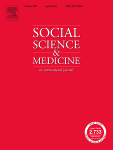
The Health Impact on Families of Health Care: A Matched Cohort Study of Hospice Use by Decedents and Mortality Outcomes in Surviving, Widowed Spouses
Abstract
Alternative ways of caring for seriously ill patients might have implications not only for patients’ own outcomes, but also, indirectly, for the health outcomes of their family members. Clinical observation suggests that patients who die “good deaths” may impose less stress on their spouses. Consequently, we sought to assess whether hospice use by a decedent is associated with decreased risk of death in surviving, bereaved spouses. We conducted a matched retrospective cohort study involving a population-based sample of 195,553 elderly couples in the USA. A total of 30,838 couples where the decedent used hospice care were matched using the propensity score method to 30,838 couples where the decedent did not use hospice care. Our principal outcome of interest was the duration of survival of bereaved widow/ers. After adjustment for other measured variables, 5.4% of bereaved wives died by 18 months after the death of their husband when their deceased husband did not use hospice and 4.9% died when their deceased husband did use hospice, yielding an odds ratio (OR) of 0.92 (95% CI: 0.84–0.99) in favor of hospice use. Similarly, whereas 13.7% of bereaved husbands died by 18 months when their deceased wife did not use hospice, 13.2% died when their deceased wife did use hospice, yielding an OR of 0.95 (95% CI: 0.84–1.06) in favor of hospice use. Our findings suggest a possible beneficial impact of hospice—as a particularly supportive type of end-of-life care—on the spouses of patients who succumb to their disease. Hospice care might attenuate the ordinarily increased mortality associated with becoming widowed. This effect is present in both men and women, but it is statistically significant and possibly larger in bereaved wives. The size of this effect is comparable to the reductions in the risk of death seen in a variety of other modifiable risk factors in women. Health care may have positive, group-level health “externalities”: it may affect the health not only of patients but also of patients’ family members.
Citation:
N.A. Christakis and T.J. Iwashyna, "The Health Impact on Families of Health Care: A Matched Cohort Study of Hospice Use by Decedents and Mortality Outcomes in Surviving, Widowed Spouses" Social Science and Medicine, 57(3): 465-475 (August 2003)